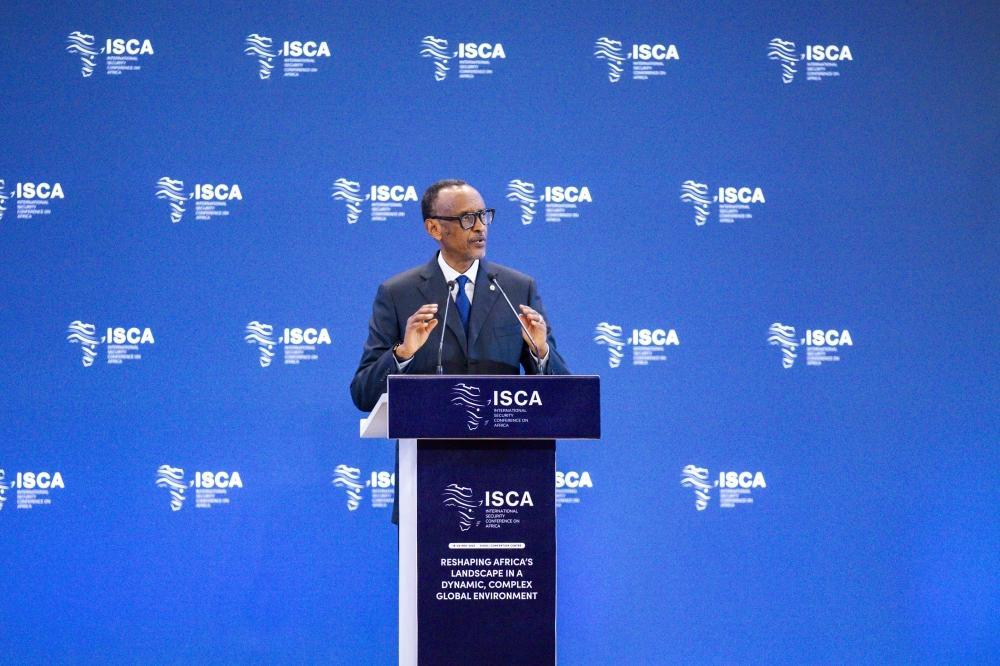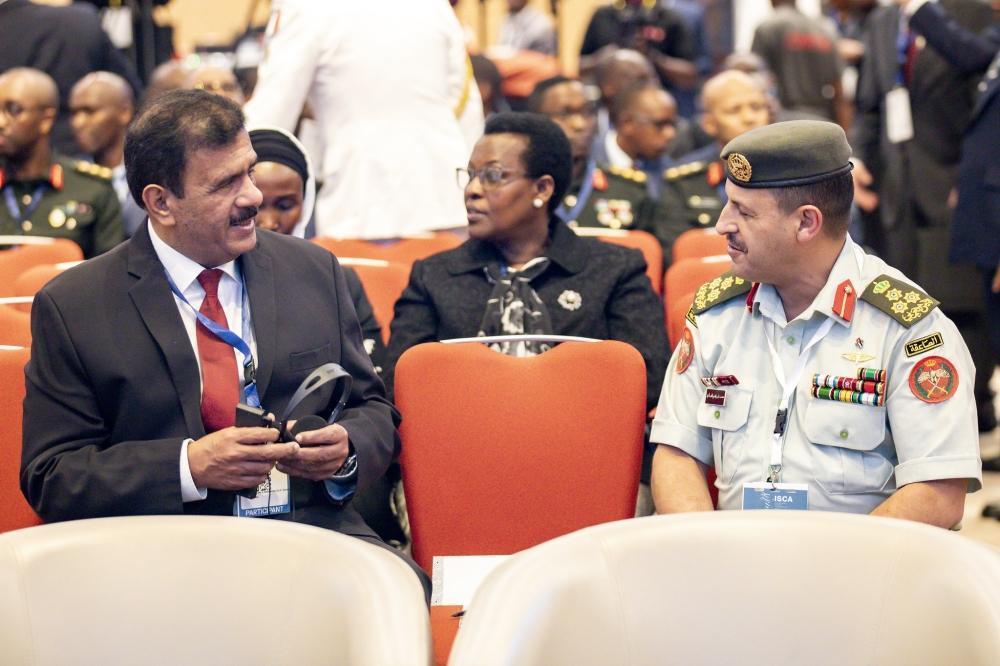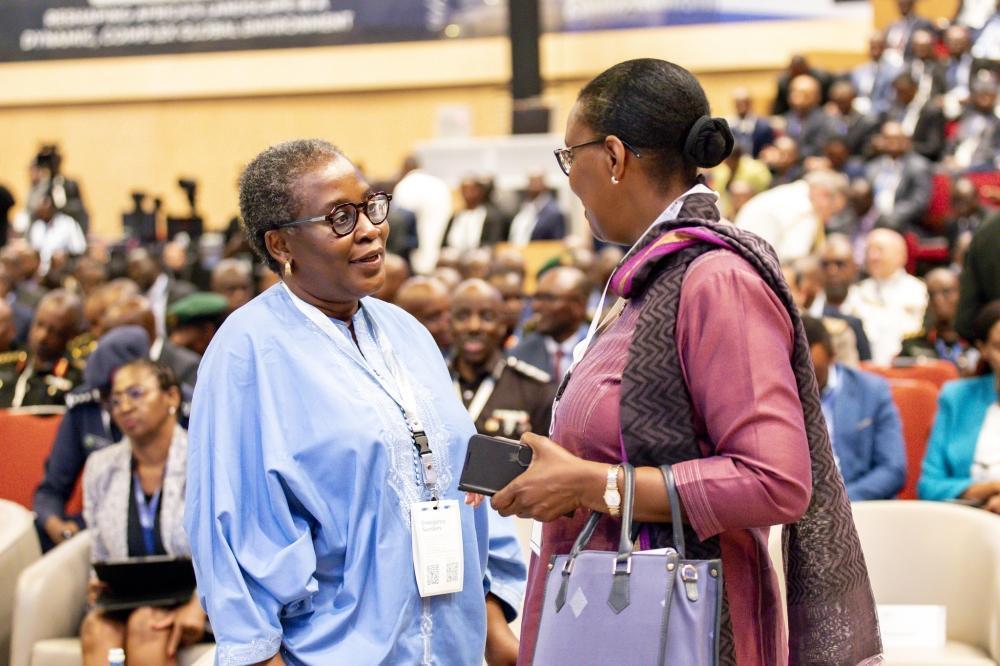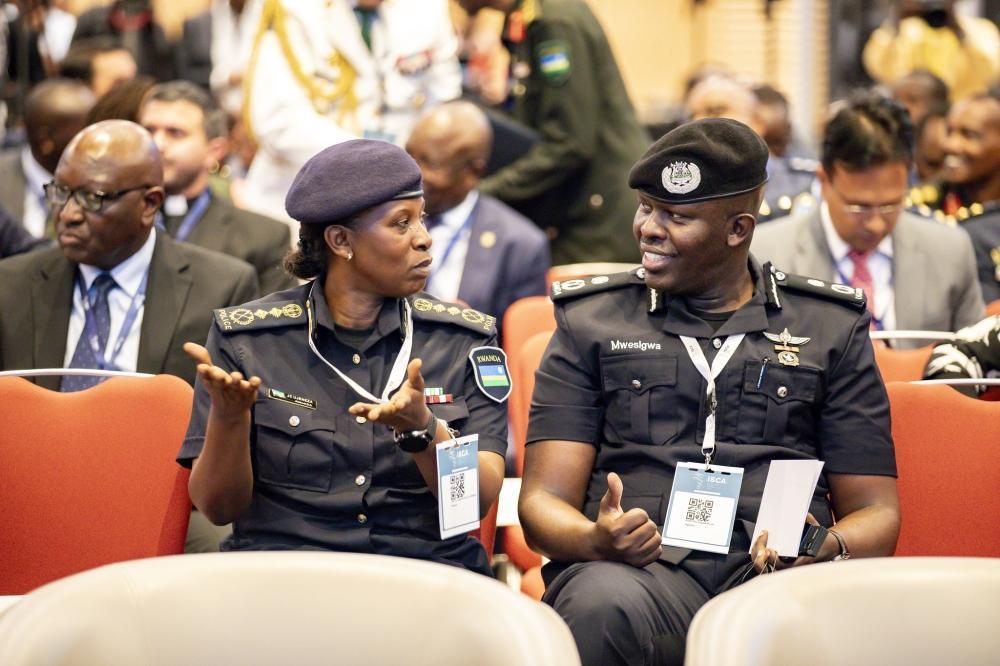Africa-Press – Rwanda. President Paul Kagame on Monday, May 19, said that Africa’s future, particularly matters of peace and security, cannot be outsourced, pointing out that it has been, for far too long, treated as a burden to be managed by others.
He was speaking at the inaugural International Security Conference on Africa (ISCA) in Kigali which brought together delegates from 70 countries, including security and intelligence experts, policymakers, private security companies, and civil society, among others.
Held under the theme “Reshaping Africa’s Landscape in a Dynamic, Complex Global Environment”, the two-day forum offers continental and global defense, intelligence, and security actors to tackle pressing security challenges and shape a collaborative future.
The conference comes at a time when Africa continues to face complex, transnational security challenges, including terrorism, political instability, cyber threats, and organized crime, which undermine peace, hinder economic growth, and threaten regional stability.
Kagame noted that the continent’s peace and security have been managed by others with minimal input from Africans and often without the benefit of the people’s context or consent.
He emphasized that this platform is more than a conference but a deliberate effort to change both the narrative and substance of how Africa engages with global security events.
The Head of State highlighted three key pillars of action to succeed in delivering peace and security fit for the continent; ownership, linking governance and security, and cooperation.
“We cannot complain about external interference while at the same time creating conditions that produce it.
“Sovereignty is not just about defending borders, it’s about taking responsibility for our security both as a state and collectively as a continent.”
President Kagame poses for a group photo with delegates at the conference in Kigali on Monday, May 19. Photos by Emmanuel Dushimimana
He noted that neglecting this duty allows others to step in, leading to a loss of credibility and control.
He added that leaders need to strengthen continental institutions so as to handle common security concerns.
Talking about the second pillar of the link between governance and security, Kagame said that when one is weak, the other is compromised and without both, there cannot be trust nor meaningful progress.
“Security is not just about the absence of threats, our job as leaders is creating an environment where people can live with dignity, enjoy their rights and look to the future with hope and confidence.”
Furthermore, he said that when it comes to cooperation, “Even with the best domestic systems in place, no country can secure itself in isolation.”
He emphasized that border-less threats like pandemic, terrorism, and cybercrimes evolve very quickly, often faster than national responses, but cooperation must go beyond merely sharing information or joining forces in an idle manner, and must be strategic, intentional, and innovative.
“The key to overcoming security problems lies in our ability to produce our own solutions.
“The exhibition attached to this conference shows what is possible when we invest in ourselves, where we have capacity we must scale it up, where we lack it this is the time and place to build it and also cooperate.”
The Chairperson of ISCA Advisory Council, Amb Moussa Faki Mahamat, said the continent has felt the need for a permanent strategic space dedicated to in-depth discussions and ongoing dialogue on peace and security issues for far too long.
He said: “At a time when systems of governance are faltering under the weight of widespread instability and growing uncertainty, Africa must be able to rely on a platform rooted in its own realities, responsive to its specificities, and driven by a shared ambition.”
While the ambition of African instruments, particularly peace and security architecture, has never been questioned, he said, what has often been lacking is a consistent political will capable of translating this ambition into concrete means and sustainable actions.
“The reality is clear. Africa’s security cannot rely on imported solutions. African solutions to African problems, as we often say and repeat, must be rooted in our own diagnoses, reflect our priorities, and rely on our ability to intervene in a timely manner and on the necessary scale.”
Mahamat said that security cannot be discussed without discussing development, as the root causes of conflicts on the continent are often structural and economic, such as persistent poverty, glaring inequalities, marginalization of young people, and broken promises.
“These are not just development failures, they are major factors of insecurity. Every road not built, every school closed, every commitment not honored further weakens the social fabric of our nations.”
He reiterated that the burden of securing the continent cannot rest on the shoulders of a handful of states, noting that true Pan-Africanism requires an equitable sharing of responsibilities, whether in terms of resources, coordination, or the will to act together, even in the face of adversity.
The Conference brought together delegates from 17 countries, including security and intelligence experts, policymakers, private security companies, and civil society, among others.
For More News And Analysis About Rwanda Follow Africa-Press










